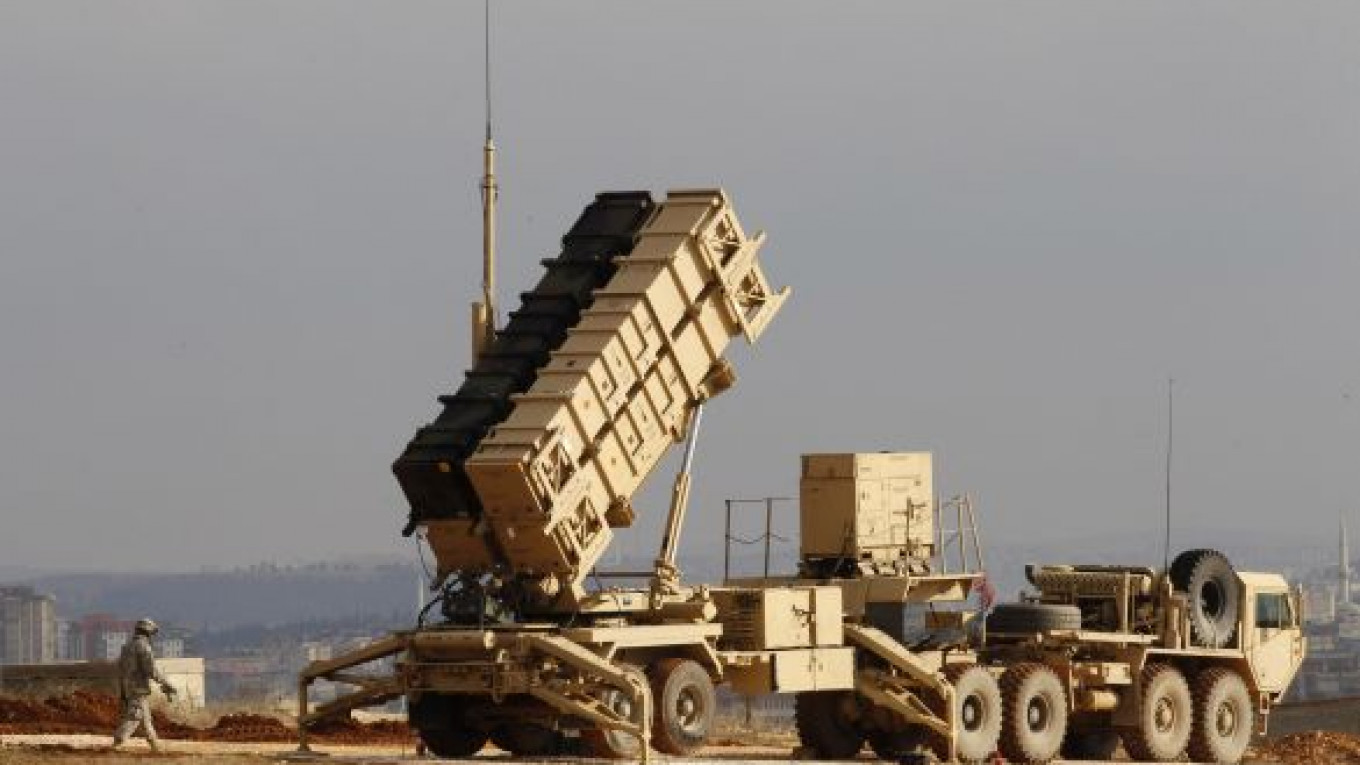President Vladimir Putin said conventional weapons systems designed to disarm a country's nuclear capability could have "extremely negative consequences" for global security in his State of the Nation speech on Thursday, in an apparent veiled reference to a U.S. military program.
Putin said Russia was closely following the development of so-called "disarming instantaneous global strike" programs, which he said could harm the international balance of power. Without naming the U.S. specifically, he seemed to be referring in part to the U.S.' planned Prompt Global Strike system, which is designed to be capable of hitting a target anywhere in the world with a precision conventional weapon that could disarm a country's nuclear capability.
"The ramping up of high-precision strategic non-nuclear systems by foreign countries, in combination with the buildup of missile defense capabilities, could negate all previously reached agreements in the area of limiting and reducing strategic nuclear weapons, and could lead to the destruction of the so-called strategic balance of powers," Putin said.
Putin's comment follows similar warnings by two high-ranking government officials this week, amid a renewal in complaints by Moscow over a NATO missile defense system in Europe.
On Wednesday, Deputy Prime Minister Dmitry Rogozin said Russia reserved the right to use nuclear weapons in response to a conventional strike and sees them as a "great equalizer" reducing the likelihood of aggression. And in an interview published in Kommersant on Thursday, Deputy Foreign Minister Sergei Ryabkov said the U.S. Prompt Global Strike system could have "apocalyptic consequences."
"If we are talking about the existing ballistic carriers with conventional armaments, then it is definitely a path toward escalating conflict with grievous, indeed apocalyptic consequences," Ryabkov said.
Russia has lagged far behind in developing such arms, but Rogozin said Russia is working on developing its own version of the "prompt global strike" weapons. He did not give any details.
Asked for reaction to Rogozin's remark that Russia reserved the right to a nuclear strike, an official at NATO headquarters in Brussels said, "NATO has stated repeatedly that it does not view Russia as an adversary."
"NATO is committed to the principles laid out in the Founding Act of the NATO-Russia Council, and works productively with Russia across a range of issues of common concern."
Russia has increasingly relied on nuclear weapons in its military strategy to compensate for a post-Soviet decline in its conventional forces. The nation's military doctrine says it may use nuclear weapons to counter a nuclear attack on Russia or an ally, or a large-scale conventional attack that threatens Russia's existence.
Russia's military doctrine mirrors the American strategy during the Cold War, when the U.S. would not rule out using nuclear weapons first, because it feared it might have to do so in response to an overwhelming conventional attack on western Europe by Soviet forces.
The U.S. plans included modifying some of the existing nuclear-armed missiles to carry conventional warheads as well as designing new vehicles capable of traveling at least five times the speed of sound.
Russian officials said that such U.S. weapons would not fall under any restrictions but would have combat efficiency comparable to nuclear weapons, and thus should be included in any prospective nuclear arms reduction talks.
Russian suspicions about U.S. intentions have aggravated tensions caused by a dispute over the U.S.-led NATO missile defense program, which Moscow sees as a threat to its nuclear deterrent.
In his speech Thursday, Putin mentioned the NATO missile system, which the U.S. says would protect it and its European allies from a potential strike by Iran.
Last month, after world powers reached a deal with Iran aimed at curbing the Iranian nuclear program, Russian Foreign Minister Sergei Lavrov said the NATO missile system would be made unnecessary if Iran follows through on the deal's provisions, a point that Putin reiterated.
"By the way, it was the Iranian nuclear program in particular that at one time served as the main argument for deploying the missile defense system," Putin said. "Now what's happening? The Iranian nuclear program is going away, but the missile defense system stays. And not only stays but continues to be developed."
The U.S. has argued that the NATO system is not aimed at Russia and is not even technically capable of hitting targets fired by Russia. The Kremlin has demanded that NATO share detailed information on its proposed system's capabilities and has also offered to build a missile defense system jointly with the U.S.
Material from The Associated Press and Vladimir Goryachev is included in this report.
Contact the author at e.pfeifer@imedia.ru
A Message from The Moscow Times:
Dear readers,
We are facing unprecedented challenges. Russia's Prosecutor General's Office has designated The Moscow Times as an "undesirable" organization, criminalizing our work and putting our staff at risk of prosecution. This follows our earlier unjust labeling as a "foreign agent."
These actions are direct attempts to silence independent journalism in Russia. The authorities claim our work "discredits the decisions of the Russian leadership." We see things differently: we strive to provide accurate, unbiased reporting on Russia.
We, the journalists of The Moscow Times, refuse to be silenced. But to continue our work, we need your help.
Your support, no matter how small, makes a world of difference. If you can, please support us monthly starting from just $2. It's quick to set up, and every contribution makes a significant impact.
By supporting The Moscow Times, you're defending open, independent journalism in the face of repression. Thank you for standing with us.
Remind me later.


